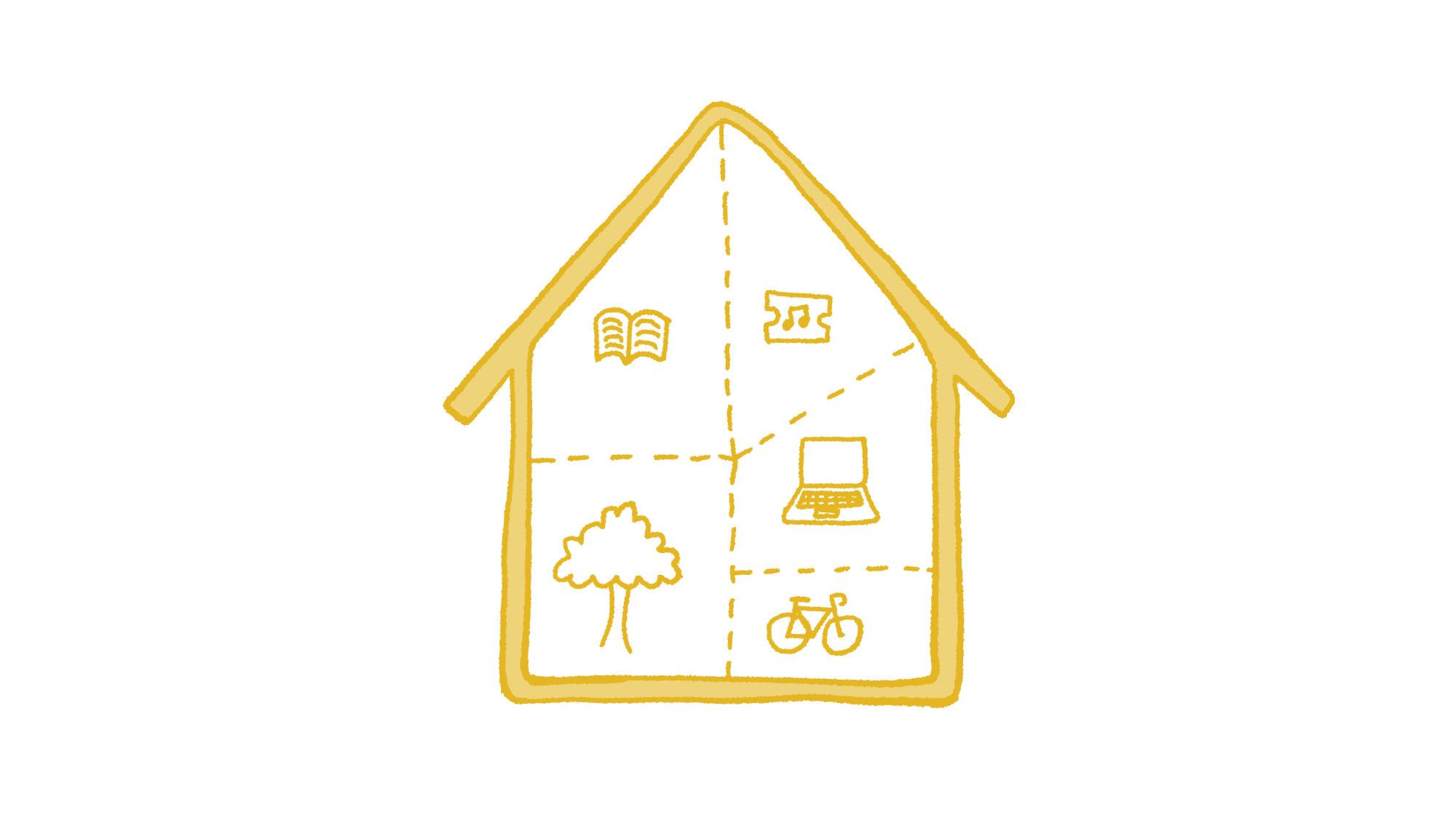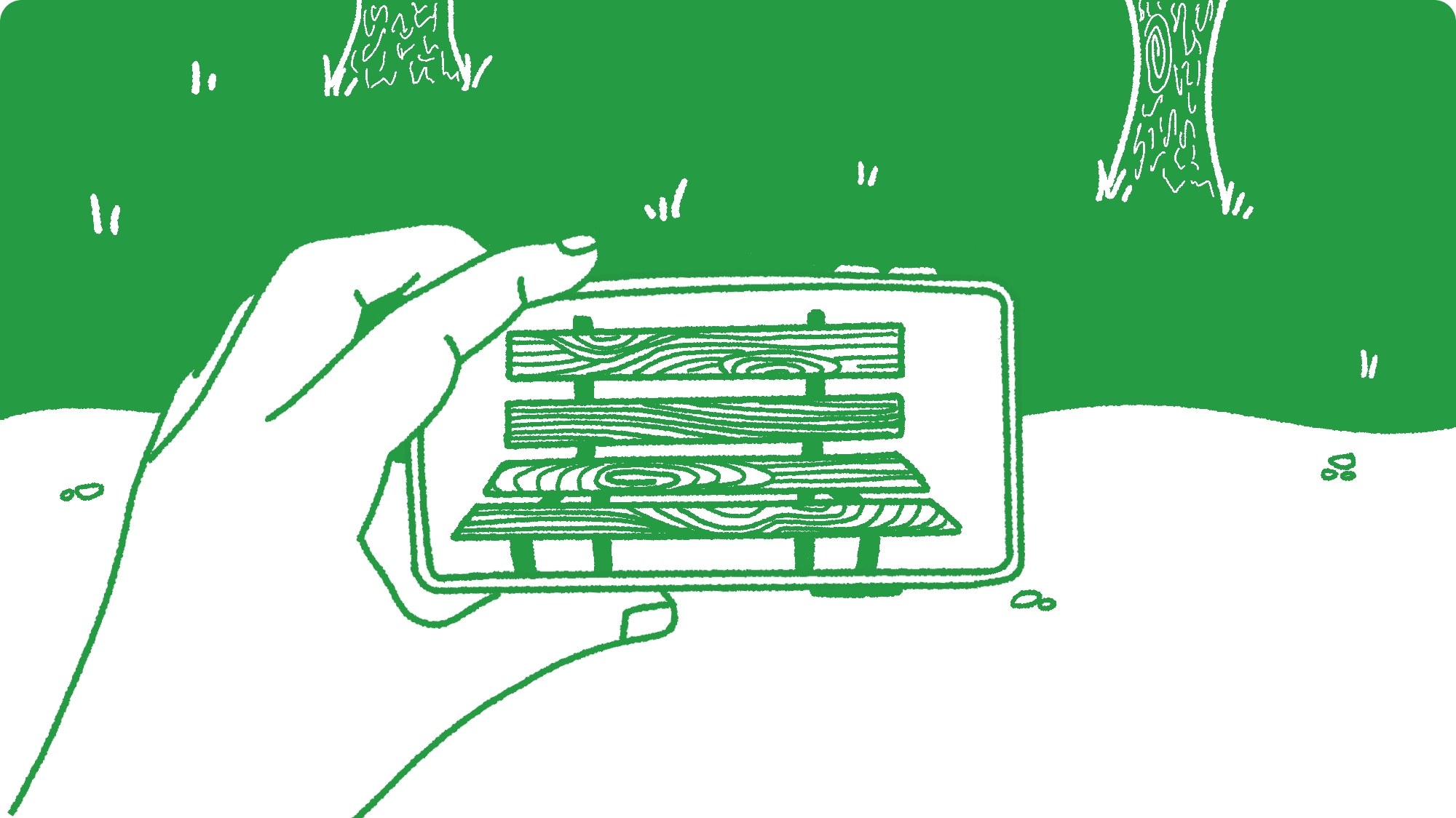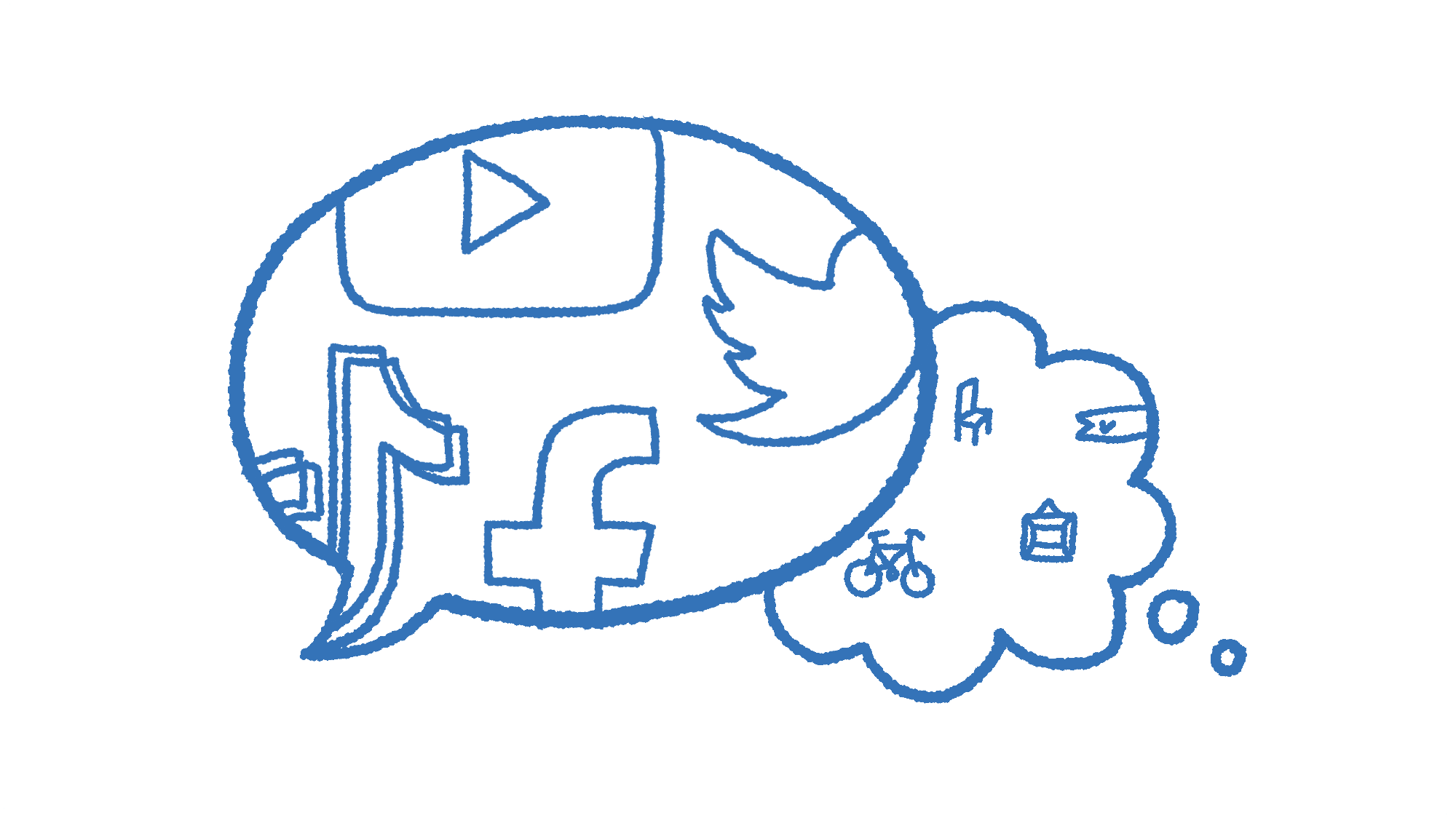Why I Care About the Internet
The tool that's been shaping us is commerce, but the tool we shaped is this jewel of an infrastructure.
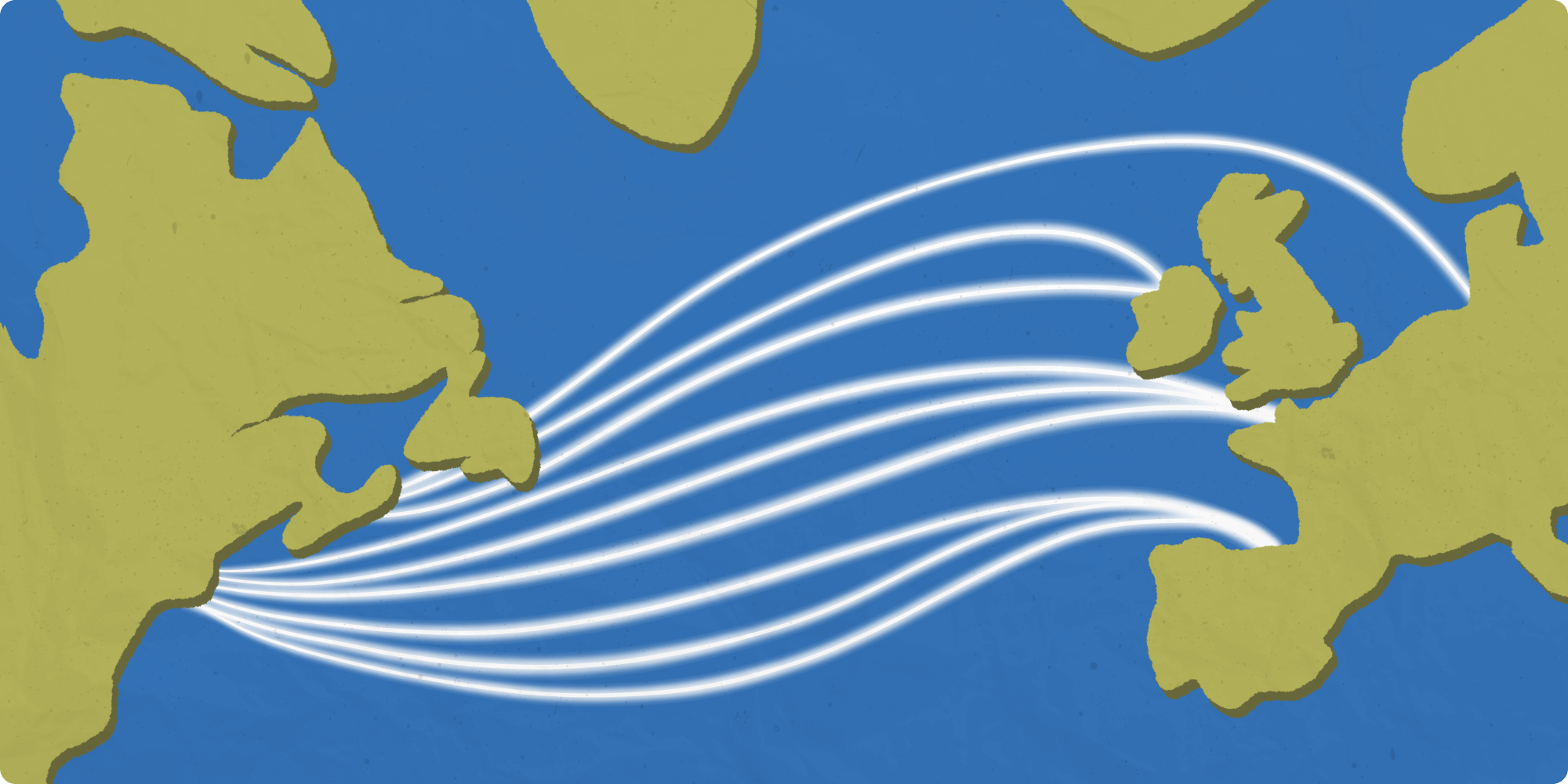
The Internet is this huge catalyst like we’ve never seen before. Enabler of connections, enabler of discovery, enabler of learning, enabler of infinite potential. There is so much beauty to be found in the contrast between the machinal infrastructure of it and the organicness of the human creativity that happens on top of it.
Layer 1: It’s All Wired
When you think about it, the Internet is this immensely complex system that needs a global network of gigantic underwater cables to run, where light travels in mirror-lined ultra thin fibres. It connects to all sorts of devices through thin air. It works at seemingly immediate speeds. The logistics of it alone are mind blowing. So few of us actually know the inner workings of it all.
New #dataviz! The Earth's submarine fiber optic cable network, visualized in #RStats with #rayrender.
— Tyler Morgan-Wall (@tylermorganwall) September 22, 2021
Code:https://t.co/6tFsS4vfAK
Rayrender Github:https://t.co/iB5nWhGY7l pic.twitter.com/1FTKM0FPHr
Layer 2: Universal Language
Then there’s the software layer. Protocols and standards and languages of all kinds make it so that things get to work together. The Internet Protocol (IP), that allows data to be sent from one computer to another, the Domain Name System (DNS), that allows data to know where it's going and is managed and protected by ICANN and the infamous "7 people who hold the keys to the Internet", the Transmission Control Protocol (TCP), that breaks data down into packets to deliver it in an ordered stream, the Hypertext Transfer Protocol (http), to exchange resources between servers and clients, the World Wide Web (WWW), everything that can happen in a browser, the Hypertext Markup Language (HTML), the standard for what makes it possible for media to be displayed in a browser. All this and more makes up a universal language that engineers worldwide know how to speak.
Layer 3: Platforms
On top of what is enabled by these standard and protocols, we get to build apps, central hubs for people to go to as entry points. Things like search engines, social media platforms, forum-type websites, blogs, online shops, website builders. This is arguably the only "layer" that needs fixing. This is where we've let private companies have control over most of our activity on the Web.
Layer 4: Human Creativity
But it's also the foundation of where the potential lies. Once you layer all the human stuff we make happen on top of the platform layer (really, the only ordinary-human-readable one), that’s where the magic really resides; in the individual creativity and beauty we get to contribute. The Web gives a voice to anyone who dares shine their light. We come onto this digital replica of the world we know and we just make it be even more.
Of course all these things come with their sets of problems, I think we’ve come to be familiar with that. So the things we invented on that platform layer, where most people tend to congregate, can go wrong —or have been going wrong. But what’s fascinating about the Internet is that it has all it needs to properly solve those problems and prevent them from happening again.
The Duplication Effect
The Web is really just a mirror of the world and when we look at ourselves in the mirror, our perception changes, we see ourselves in a new light. Especially something that has never had such a detailed and complex version of itself to look back at. This aspect of it being a mirror brings to light a lot of negatives, naturally. Because the world contains pain and horror and injustice in its original form. But I wouldn’t say the Internet is what multiplies those things. I know a lot of people would argue otherwise if we think of hate speech and white supremacy who’ve been amplified with the gracious help of social media. What I mean is that the Internet, by nature, isn’t responsible for that magnifying effect. We’ve seen it again and again, that specific phenomena is caused by self-interested private companies who’ve managed, over the years, to gather way too many people on the same platforms so they can run ads.
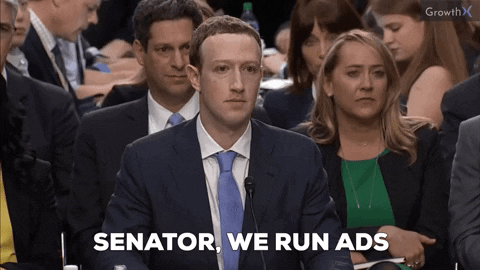
In other words, that phenomena is caused by the way in which things are made available to us —and that, for now, has mainly been the dynamics of a marketplace.
"If the contemporary internet is a city, Wikipedia is the lone public park; all the rest of our public spaces are shopping malls—open to the general public, but subject to the rules and logic of commerce."
—Building a More Honest Internet, Ethan Zuckerman for CJR
The bare Internet, through an infrastructure lens, was never meant to deliver those experiences. It was never meant to polarize and divide and addict us. So the reason I care so much about the Internet is that I still believe deeply in its original potential. I just know there’s so much more we could do if we just took the time to heal it.
Our Tools Shape Us
You know what they say about technology: "we shape our tools and thereafter our tools shape us". The tool we shaped isn’t this chaotic landscape of addictive social media and privacy invasive smart devices. That came second and is just a consequence of us collectively allowing the Web to be this playground for capitalism. What's currently shaping us is commerce. That’s a decision we made and we get to unmake. No. The tool we shaped is this jewel of an infrastructure, this enabler of connection. The tool we shaped is one for sharing information and knowledge and for learning from one another. The tool we shaped is one for removing barriers of time and place.
What I care so deeply about is the tool we shaped and the human potential it represents. What’s currently happening in between, I like to believe is temporary.
A Girl Can Dream
I dream of an Internet without ads. I dream of an Internet as true public place. An Internet as global agora. I know for that there’s still a lot of work needed in our governments and I’m not sure our current system of even having separate countries on this Earth would allow this to happen but hey, a girl can dream.
I dream of an Internet like a city where you get to show your art, meet new people, collect the things you love. Learn like you would at school, read like you would at the library, work like you would at the coworking space, play like you would at the park, meander like you would in a museum, vote like you would at the community centre, shop like you would at your local boutique. Mindfully, wholesomely, humanly.
I imagine an internet where trust reigns. Not worry, addiction, skepticism. A trustworthy place where if you can read it, watch it or experience it there, on the Internet, it's because another human being has created it and put it on there out of good faith. Out of a pure desire to share, in the hopes it'll help someone else or reach someone who can help them in return. Not out of incentive. Not because they want to profit from it. But because the Internet is already an incredible tool for sheer human connection.
I know we’re far from that. Very far. But we’re closer than at any other time in our History. I use the Internet every single day, like most of us, and I still believe in this vision and hope we’ll get there. Hope we’ll get there before it’s too late. Because yes, part of me constantly worries our world is irreversibly heading in a direction which makes us all very sad and anxious and that affects the beautiful technology that is the Internet as much as it affects the climate, our well-being, our rights, justice, peace. It’s all connected really.
Weaving commerce into the fabric of the Internet was probably inevitable —evolutionarily-speaking— but now that we're growing aware of the negative consequences of this collective decision, it's more than time to try again. Try something else. Leverage this jewel of an opportunity to concretely advance humanity and bring us all into a greater awareness of our innate interconnectedness, which has been buried for way too long under the noise and distractions of consumerism and capitalism and individualism.
If we could access a trusting place of sharing and knowledge, all these symptomatic superficialities would go away. Or at least we'd finally see they were just that — symptoms. And we'll laugh because we had already shaped the right tool. And we'll laugh because we were sitting on the solution all along. And we'll laugh because we'll be amazed at this first glance at humanity's full potential.
Further reading
- A map of all the underwater cables that connect the internet, by Phil Edwards for Vox
- Meet the seven people who hold the keys to worldwide internet security, by James Ball for The Guardian
- The Problem with "The Seven Keys", by the ICANN board for their blog
- Building a More Honest Internet, by Ethan Zuckerman for Columbia Journalism Review

